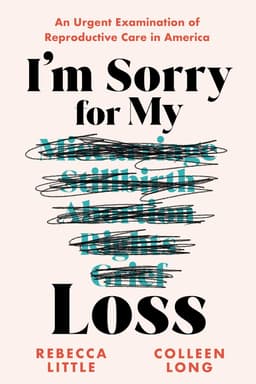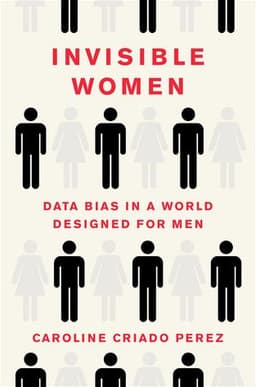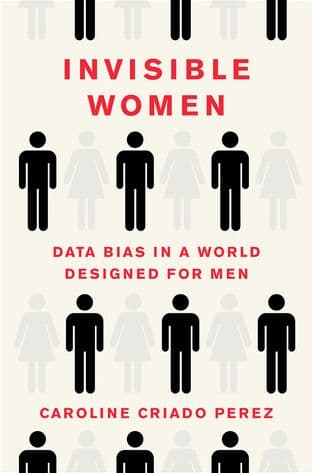
I'm Sorry for My Loss Book Summary
An Urgent Examination of Reproductive Care in America
Book by Rebecca Little, Colleen Long
Summary
"I'm Sorry for Your Loss" is a groundbreaking exploration of the cultural silence, medical myths, and legal quagmires surrounding miscarriage, stillbirth, and abortion in America, weaving together personal stories, historical context, and expert insights to envision a world where no one has to grieve alone.
Sign in to rate
Average Rating: 5
How We Got here
Two Friends Unite To Tackle The Taboo Of Pregnancy Loss
Rebecca Little and Colleen Long, childhood friends who both experienced pregnancy loss, decide to write a book together about the cultural silence and stigma surrounding miscarriage, stillbirth, and abortion in America. Despite 1 in 4 pregnancies ending in loss, it remains a topic shrouded in secrecy and shame. The authors aim to bring together medical experts, historians, linguists, therapists, and those who have experienced loss to envision a more compassionate system of care.
Section: 1, Chapter: 1
The Minefield Of Language Around Pregnancy And Loss
The chapter explores how the lack of adequate language and the political baggage of existing terms make it difficult to discuss pregnancy loss. Key issues include:
- Lack of agreement on when life/personhood begins (conception, quickening, viability, birth)
- Clinical terms like embryo and fetus lack emotional resonance
- Colloquial terms like baby are emotionally loaded but politically fraught
- No good term for a "pre-baby entity with some emotions attached"
- Providers encouraged to mirror patient's language ("baby" vs "fetus")
- Patients often confused/upset by clinical terms like "abortion" or "products of conception"
The language choices, while seeming benign, are indicative of intent, emotion and politics. This rhetorical knot leaves those experiencing loss adrift.
Section: 1, Chapter: 1
Obstetric Nightmares - How Gynecology Used The Bodies Of Poor & Minority Women
In the 1840s, Dr. Marion Sims, the "father of gynecology," performed experimental fistula surgeries on enslaved women without anesthesia. One 17-year-old girl, Anarcha, endured 30 surgeries over 4 years. Sims subscribed to the racist belief that Black people didn't feel pain like white people. He later experimented on poor Irish immigrants. The field of gynecology was built on the bodies of society's most vulnerable women, a legacy that continues to impact care disparities today.
Section: 1, Chapter: 2
The Rise Of The "Medicalization Of Miscarriage" In The 19th Century
In the mid-1800s, miscarriages started shifting from a private event managed at home to a medical issue as more poor women delivered in charity hospitals. Fetal specimens collected from these losses were displayed in doctor's offices as proof of their scientific prowess, in contrast to midwives. This "medicalization of miscarriage" coincided with:
- Advancing fields of embryology and anatomy
- Proliferation of all-male medical schools needing cadavers
- Campaigns to outlaw midwifery and abortion
- Nativist fears about falling white birth rates
Women's personal experiences, as revealed in diaries, showed a range of emotions from relief to grief. The notion of miscarriage as a shameful personal failure didn't arise until the 20th century.
Section: 1, Chapter: 2
Mothers Blamed Either Way In The 1950s
In the 1950s, medical advances meant women were more likely than ever to survive childbirth, as were their babies. However, cultural attitudes took a darker turn, with motherhood defined by impossible standards and contradictions:
- Working mothers were vilified, but many had to work to support their families
- Childhood issues from delinquency to autism were blamed on mothers
- Mothers were told to get electroshock therapy if they weren't completely fulfilled by motherhood
- Women who sought abortions were considered mentally ill
A miscarriage or two was tolerated as long as a woman eventually had children. If she had too many, psychologists suggested it was due to unconscious rejection of motherhood. Women were "neurotic" if they didn't love every minute of mothering but also neurotic if they miscarried. A cultural setup for failure.
Section: 1, Chapter: 3
The Fallacy Of Control - How Reproductive Advances Changed Views On Miscarriage
The ability to choose whether and when to get pregnant through birth control and legal abortion in the 1960s-70s led to the notion that if a woman chose to stay pregnant, it should end with a healthy baby. When it didn't, it was seen as her failure.
Actionable Insight: Be aware of how the cultural view of pregnancy as completely controllable can compound guilt after loss. Remind yourself that miscarriage and stillbirth are still common (occurring in up to 1 in 4 pregnancies) and usually unpreventable, even with modern medicine. Resist the urge to blame yourself for a sad outcome when you did everything "right." Loss is not a personal failure.
Section: 1, Chapter: 4
Cute Fetus, Gross Fetus - The Duality Of Fetal Imagery In Politics
The anti-abortion movement has masterfully employed fetal imagery to further its cause since the 1980s. Fetal development is depicted as a seamless journey from conception to cherubic newborn. The fetus is shown as an independent being, with the woman's body erased. The humanity of the fetus is highlighted or downplayed as needed for maximum emotional impact.
The overall effect has been to change hearts and minds on fetal personhood. This makes sense, as the authors note, "Frequency of language use and imagery matters. The more frequent the language use or imagery, the more strengthening occurs." The fetus is now a symbol more than a biological reality.
Section: 1, Chapter: 5
The Dissonance Of Ultrasound - Medical Miracle Meets Moral Dilemma
Routine ultrasounds, available since the 1980s, have allowed parents to "meet" their babies earlier than ever before. However, their cultural impact has been mixed.
Ultrasounds operate in both medical and emotional registers simultaneously. They can bring joy or grief, provide vital diagnostic information or be used as political theater (as with pre-abortion "heartbeat checks"). They complicate our understanding of life before birth.
Section: 1, Chapter: 5
Sick Mothers
The Dangers Of Excluding Pregnant Women From Studies
Pregnant women have historically been excluded from clinical trials and research due to ethical concerns about fetal harm and liability. However, this knowledge gap makes their care more dangerous:
- Medication dosages based on male bodies may be incorrect for women
- No data on drug interactions with pregnancy
- Women with conditions like epilepsy or cancer have fewer treatment options
- Racial disparities in research participation and outcomes
The chapter argues there are ethical ways to include pregnant people in research via observation, analysis of existing real-world data, and carefully designed studies. Doing so could save lives and improve care.
Section: 2, Chapter: 6
Maternal Mortality Is A Marker - What Our Shameful Rates Say About America
"Maternal mortality ratios tell us how well a country's healthcare system in general is functioning. In America, our maternal mortality rates are a stark reminder of how little we actually value women's health." - Anushay Hossain, The Pain Gap
Despite spending more on healthcare than any other developed nation, the U.S. maternal death rate is the highest among its peers and rising. Black women are 3 times more likely than white women to die from pregnancy-related causes, revealing deep inequities. Systemic bias, social determinants of health, and the erosion of reproductive rights all contribute to this crisis.
Section: 2, Chapter: 6
Miscarriage Is Not Your Fault - Resisting The Guilt Spiral
Almost all those interviewed believed they somehow caused their pregnancy loss. In reality, the cause is unknown in most cases.
As Dr. Katharine White states: "No matter how educated somebody is...everyone is looking for the thing that they did. ... 'If only' gets a hold and won't let go."
- If your provider says the loss is not your fault, believe them. Repeat it like a mantra if needed.
- Recognize that guilt is a normal grief reaction, not a reflection of truth. Talk back to self-blame.
- Don't indulge "if only" thoughts. Playing a loss over and over to see what you could have done differently will only deepen pain.
- Know you're not alone. Miscarriage occurs in 10-20% of known pregnancies. Stillbirth occurs in 1 in 175 pregnancies. These statistics reflect biological realities, not personal failings.
Section: 2, Chapter: 6
When A Miscarriage Is A Crime - The Growing Threat Of Prosecution
Since Roe v Wade was overturned in 2022, many states have enacted laws severely restricting or banning abortion. Some grant embryos/fetuses full legal personhood. This has created confusion and fear around miscarriage management, as the same procedures and medications are used for both miscarriage and elective abortion.
Particularly in communities of color, where medical mistrust due to racism is already high, this could lead to devastating public health impacts as pregnant people avoid care. Some may even be prosecuted for adverse outcomes like stillbirth, a return to draconian policing of pregnancy.
Section: 2, Chapter: 7
Black Women Bear The Brunt - Racism As A Pregnancy Risk Factor
Black women suffer disproportionately high rates of miscarriage, stillbirth, and maternal death compared to white women. Social inequities, chronic stress, and medical discrimination create physical circumstances that make healthy births more difficult:
- Lack of access to quality prenatal care
- Untreated conditions like fibroids or hypertension going into pregnancy
- Providers not believing reports of pain or warning signs
- Hospitals without adequate resources/training to handle emergencies
- Expectation that Black women be "strong" and not complain
- Lifelong impacts of racism on health increasing pregnancy risks
Section: 2, Chapter: 8
Dealing With Racism In Our Daily Lives Is A Major Factor In Our Health
"Dealing with racism in our daily lives is a major factor in our health and well-being. The experience of racism makes Black people sick, whether it's mental and emotional health or even physical health." - Jamila Taylor, reproductive rights advocate
Many of the Black women interviewed spoke of how the cumulative stress of racism, on top of the trauma of pregnancy loss, felt like a double burden. Some hesitated to become pregnant at all, afraid they wouldn't survive the experience in a medical system stacked against them. Their losses were also more likely to be dismissed or met with stereotypes about their ability to handle hardship. As one woman put it: "The checklist doesn't exist...you can't be safe if you are a Black birthing person."
Section: 2, Chapter: 8
The Legal Morass
Pregnant And Prosecuted - The Legal Jeopardy Of Carrying To Term
A patchwork of state laws, emboldened since the fall of Roe, increasingly criminalize adverse pregnancy outcomes and police the behavior of pregnant people. These include:
- Homicide and abuse charges for drug use, accidents, or suspected self-harm during pregnancy
- Civil lawsuits enabling state control of medical decisions (forced C-sections, surgery, etc.)
- Removal of "life of the mother" exception for ending ectopic or dangerous pregnancies
Low-income women and women of color are disproportionately targeted, reflecting America's long history of reproductive control of marginalized groups. With embryonic/fetal personhood on the rise, all pregnant people are increasingly treated as potentially criminal or suspect - guilty until proven innocent.
Section: 3, Chapter: 9
A Miscarriage Scare In A Post-Roe World
Jessica started bleeding heavily and cramping at six weeks pregnant. Her doctor suspected a miscarriage, but couldn't prescribe the standard medication (misoprostol) for two weeks. Why? To make sure Jessica wasn't inducing an abortion herself, now illegal in Texas after six weeks with no exceptions. Waiting risked hemorrhage or infection for Jessica.
Section: 3, Chapter: 9
The Abortion Surveillance State - When Medical Records Become Evidence
In 2021, a Nebraska mother and daughter were charged with illegal abortion and improper disposal of human remains based on their private Facebook messages. The daughter, 17 at the time, obtained abortion pills and allegedly buried the fetal remains. Their unencrypted conversations about the situation were turned over to law enforcement by Facebook's parent company Meta in response to a warrant.
As more states pass laws enabling citizens to sue anyone suspected of aiding an illegal abortion, digital surveillance of pregnant people is likely to increase. Period tracking apps, search histories, location data, and social media are all potential fodder for investigations. Medical privacy and freedom of speech are collateral damage in the war on reproductive rights.
Section: 3, Chapter: 9
The Dysfunctional Dance Of Doctors And Lawmakers
In states with strict abortion bans post-Roe, medical professionals are struggling to navigate vague legal language and provide appropriate care without risking their licenses or freedom. Common dilemmas include:
- When a pregnancy complication becomes "life-threatening" enough to allow termination
- Whether mental health crises like suicidality qualify for health exceptions
- How imminent the risk of death or disability must be to avoid prosecution
- Lack of clear definitions around terms like "abortion" vs "miscarriage management"
Doctors report delaying care, avoiding certain procedures, or sending patients out of state rather than risk a felony charge. Hospital lawyers have become de facto consultants on routine OB-GYN decisions. Politicians without medical expertise are setting unworkable standards that put pregnant people in danger.
Section: 3, Chapter: 10
"Heartbeat Bills" Break Doctor-Patient Trust
"The issue, I think, and why confusion is the norm is that the procedures and medications that we use to treat pregnancy loss or miscarriage or fetal loss that someone did not choose are the same as treatments and medications that we use to treat and provide abortion care—which in this case means a pregnancy that ends because someone makes a decision to end it." - Dr. Lisa Harris, ob-gyn and miscarriage specialist
Many patients are shocked to learn the same pills and procedures are used for voluntary abortion and miscarriage. Heartbeat bills, which ban abortion after electrical cardiac activity is detected (around 6 weeks), make no exception for pregnancies that are already miscarrying with a doomed "heartbeat." This forces patients to carry dead or dying tissue, risks sepsis, and shatters trust that doctors are making decisions based on medical best practices rather than shifting political winds.
Section: 3, Chapter: 10
Politicians Set Unworkable Health Standards
"Politicians without medical expertise are setting unworkable standards that put pregnant people in danger."
Section: 3, Chapter: 10
"Concealing A Death" - When Privacy Is A Crime
In 2018, a young Arizona woman was convicted of "concealing a dead body" and sentenced to over 2 years in prison after she delivered a stillborn baby at roughly 20 weeks into her pregnancy. Alone and bleeding heavily, she panicked and placed the 1 pound remains in a grocery bag before going to the hospital.
Arizona has no law specifically addressing self-managed abortion or miscarriage, but prosecutors are testing novel legal theories to punish women for pregnancy outcomes. Concealment and abuse of a corpse statutes, intended for other situations, are increasingly being applied to pregnancy loss - making a common medical event and intensely private grief potentially criminal. With Roe gone, advocates fear more women will be imprisoned as fetuses gain legal status while the complexities of miscarriage remain poorly understood.
Section: 3, Chapter: 11
A Loss Unacknowledged Is No Loss At All - Pregnancy Loss In The Workplace
Miscarriage and stillbirth are rarely eligible for bereavement leave, forcing employees to take sick or vacation days - if they have any. The lack of standard policies means loss parents are at the mercy of individual supervisors. Common issues include:
- No time off to physically recover or grieve
- Having to share private medical details to "prove" the loss
- Fear of professional consequences for taking "too much" time
- Insensitive comments from coworkers who don't understand the impact
- Policies that only apply after 20 weeks or for funerals/cremations
- Needing to revise projects or reduce workload while emotionally fragile
A handful of states and companies are expanding leave to cover pregnancy loss and fertility treatment, recognizing the physical and psychological toll. But millions still suffer in silence while corporate platitudes of "family friendly" policies ring hollow.
Section: 3, Chapter: 12
The Making of Meaning
Toxic Positivity And The Tyranny Of Trying Again
Well-meaning messages meant to comfort loss parents often reinforce harmful narratives:
- Everything happens for a reason
- God has a plan
- At least you know you can get pregnant
- You can always have another/adopt
- Stay positive and try again
The "try, try again" ethos reflects American ideals of rugged individualism and optimism at all costs. We're uncomfortable with "unproductive" pain. But grief is not a problem to solve. Continuing to carry a pregnancy after loss is not morally superior to taking time to heal or closing the door on parenthood. All are valid paths.
Section: 4, Chapter: 13
The Motherhood Mandate - Sacrificing Body And Soul For Baby
Dominant cultural scripts celebrate the self-sacrificing mother as an ideal to aspire to. Themes include:
- Magical thinking (if I want it enough, it will happen)
- Maternal instinct trumps medical advice
- Good mothers never "give up"
- Healthy baby is the only definition of success
- Mother's wellbeing (physical, mental, financial) is secondary to fetal/child welfare
Discounting quality of life as a factor in termination decisions While some find the mama bear trope empowering and believe a mother's love can defy biology, others feel trapped by the expectation to be an incubator at all costs. Unquestioned sacrifice can lead to preventable tragedy for mother and child.
Section: 4, Chapter: 13
The Emotional Labor of Meaning
"With no cultural script to follow, the burden is on grieving women to make their own meaning - an extra layer of emotional labor."
Section: 4, Chapter: 14
Writing Your Own Ritual - The Power Of Personal Mourning
With no cultural script to follow, many loss parents create their own rituals for healing and remembrance. Tips for meaningful mourning:
- Focus on what feels right, not what's expected. There's no wrong way.
- Think beyond the funeral. Grief evolves over time.
- Engage different senses - sight, sound, touch, taste, smell. The body remembers.
- Involve siblings if helpful. Reading a storybook or making crafts keeps the baby part of the family story.
- Embrace trial and error. If a ritual falls flat or feels too painful, try something else.
- Take your time. Forcing closure often backfires. Grief has no deadline.
The path is winding and unpredictable. But small steps forward, in community and in private, weave the loss into life after. New memorials may emerge years down the road - healing is lifelong. The only memorial "rule" is honoring what the heart needs.
Section: 4, Chapter: 15
Related Content


Invisible Women Book Summary
Caroline Criado Perez
Invisible Women exposes the gender data gap that underlies our male-default world, revealing the hidden ways in which the failure to collect data on women's lives leads to bias, discrimination, and disadvantage in everything from healthcare to the workplace to public policy - and offers a roadmap for closing this gap to build a more equitable future for all.
Invisible Women exposes the gender data gap that underlies our male-default world, revealing the hidden ways in which the failure to collect data on women's lives leads to bias, discrimination, and disadvantage in everything from healthcare to the workplace to public policy - and offers a roadmap for closing this gap to build a more equitable future for all.
Society
Feminism
Technology


Lean In Book Summary
Sheryl Sandberg
In Lean In, Sheryl Sandberg examines the barriers women face in achieving leadership roles and offers compelling, research-based advice on what women can do to overcome these obstacles and achieve their full potential in both their professional and personal lives.
In Lean In, Sheryl Sandberg examines the barriers women face in achieving leadership roles and offers compelling, research-based advice on what women can do to overcome these obstacles and achieve their full potential in both their professional and personal lives.
Leadership
Feminism
Business
Biography

